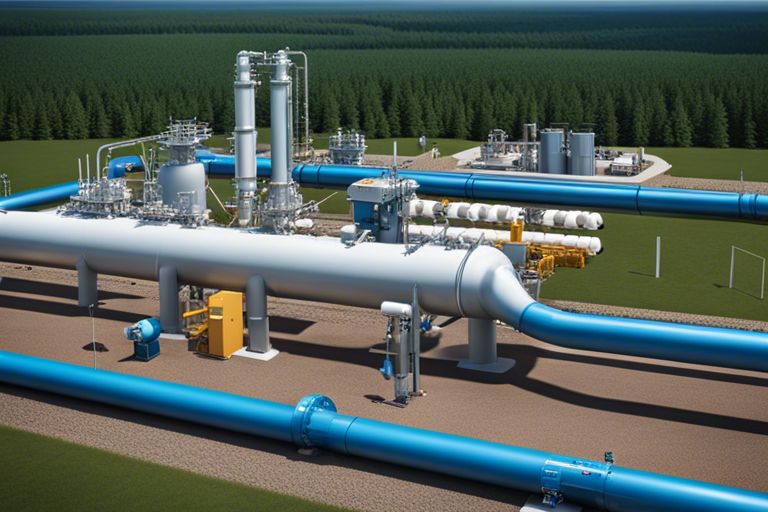In Tulsa, oil has been a driving force behind the city’s economy for decades. Historically known as the “Oil Capital of the World,” Tulsa’s financial future is deeply intertwined with the oil industry. As one of the leading oil producers in the United States, the city’s economy is highly dependent on the oil market’s fluctuations. The oil industry not only provides jobs and revenue for the city but also poses risks due to its volatile nature. Understanding the role that oil plays in Tulsa’s financial future is crucial for residents, businesses, and policymakers to navigate the challenges and opportunities that come with it.
Key Takeaways:
- Oil industry downturn: Tulsa’s financial future is directly impacted by the oil industry, making it vulnerable to the fluctuations in oil prices and demand.
- Diversification efforts: Tulsa is actively working to diversify its economy by investing in industries such as technology, aviation, and healthcare to reduce its reliance on oil revenues.
- Importance of oil sector: Despite diversification efforts, the oil sector remains a crucial player in Tulsa’s financial future, providing jobs and revenue that support the local economy.
- Need for sustainable growth: With the unpredictability of the oil market, Tulsa must focus on sustainable growth strategies to ensure long-term financial stability and prosperity.
- Collaboration and innovation: Collaboration between the public and private sectors, as well as ongoing innovation in oil extraction and production methods, will be key to shaping Tulsa’s financial future in a changing economic landscape.
Current State of the Oil Industry in Tulsa
Oil Production and Reserves
Little is known about Tulsa’s oil production compared to its boom years, but the city still holds substantial oil reserves. With new technologies and exploration efforts, Tulsa continues to tap into existing reserves while seeking new sources to maintain its position in the industry.
Employment and Economic Impact
Employment in the oil industry plays a pivotal role in Tulsa’s economic landscape. The sector not only provides jobs for a significant portion of the local population but also contributes to the overall economic health of the city. The industry’s stability directly impacts the prosperity of various businesses and services in the area, making it a crucial element in Tulsa’s financial future.
Diversification and Economic Resilience
Shifting Towards Renewable Energy
Any thriving economy understands the importance of diversification to ensure resilience in the face of changing global markets. In Tulsa, as part of this strategy, there has been a noticeable shift towards renewable energy sources. This transition not only aligns with environmental goals but also positions the city to adapt to the evolving energy landscape.
Investments in Alternative Industries
Energy diversification involves not only shifting towards renewables but also making strategic investments in alternative industries. For instance, Tulsa has started focusing on technology, healthcare, and aerospace sectors to reduce dependency on traditional oil-based revenues. These industries offer significant growth potential and can diversify the city’s economy while fostering job creation and innovation.

The Future of Oil in Tulsa
Predictions and Trends
Not only is the oil industry deeply ingrained in Tulsa’s history, but it also continues to significantly impact the city’s economy today. However, with the global shift towards renewable energy sources and the increasing focus on environmental sustainability, the future of oil in Tulsa is uncertain.
Prospects for Sustainability and Growth
Future growth in Tulsa’s oil industry will depend on its ability to adapt to changing market demands and environmental regulations. This will require innovation in technologies that reduce the industry’s carbon footprint and minimize environmental impact. This shift towards sustainability could open up new opportunities for growth and investment in the oil sector, ensuring a more stable financial future for Tulsa.

Challenges and Opportunities
Environmental Considerations
Now, as Tulsa looks to the future of its financial landscape, it must grapple with the environmental considerations surrounding the oil industry. With increasing awareness of climate change and the need to transition to sustainable practices, there is growing pressure on the city to reduce its reliance on traditional oil production methods.
Innovation in the Energy Sector
The energy sector in Tulsa is ripe for innovation, presenting both challenges and opportunities for the city’s financial future. The development of new technologies, such as renewable energy sources and advanced drilling techniques, has the potential to revolutionize the industry and create new economic opportunities for Tulsa.
To capitalize on these opportunities, Tulsa must prioritize innovation and invest in research and development. By embracing cutting-edge technologies and fostering a culture of creativity and entrepreneurship, the city can position itself as a leader in the evolving energy landscape.
To wrap up
With these considerations in mind, it is evident that oil continues to play a crucial role in Tulsa’s financial future. While diversifying the economy is crucial for long-term sustainability, the city’s historical reliance on the oil industry cannot be overlooked. By leveraging its expertise in the energy sector and investing in new technologies, Tulsa can continue to thrive in the ever-evolving global market. As the industry continues to evolve, Tulsa must adapt and innovate to remain a key player in the energy sector and secure its financial future for generations to come.
FAQ
Q: What role does oil play in Tulsa’s financial future?
A: Oil plays a significant role in Tulsa’s financial future as the city has a long history of being an oil hub. The oil industry provides jobs, revenue, and economic stability to the region.
Q: How does the price of oil affect Tulsa’s economy?
A: The price of oil directly impacts Tulsa’s economy as it determines the profitability of oil companies, which in turn affects employment, investments, and overall economic growth in the region.
Q: What are some challenges that Tulsa faces regarding its dependence on oil?
A: Tulsa faces challenges such as market volatility, environmental concerns, and the transition to alternative energy sources, which may impact the city’s long-term reliance on oil.
Q: How does the oil industry contribute to Tulsa’s tax revenue?
A: The oil industry in Tulsa contributes significantly to the city’s tax revenue through property taxes, sales taxes, and income taxes paid by oil companies and their employees.
Q: What steps is Tulsa taking to diversify its economy away from oil?
A: Tulsa is actively promoting industries such as technology, aerospace, manufacturing, and healthcare to diversify its economy away from oil and reduce its dependence on a single sector.
Q: How important is the oil industry for job creation in Tulsa?
A: The oil industry is a major contributor to job creation in Tulsa, providing employment opportunities in drilling, extraction, refining, and related services, supporting the local workforce.
Q: What impact does the oil industry have on Tulsa’s overall economic growth?
A: The oil industry has a substantial impact on Tulsa’s overall economic growth by attracting investment, fostering innovation, and driving development in infrastructure, real estate, and other sectors of the economy.




